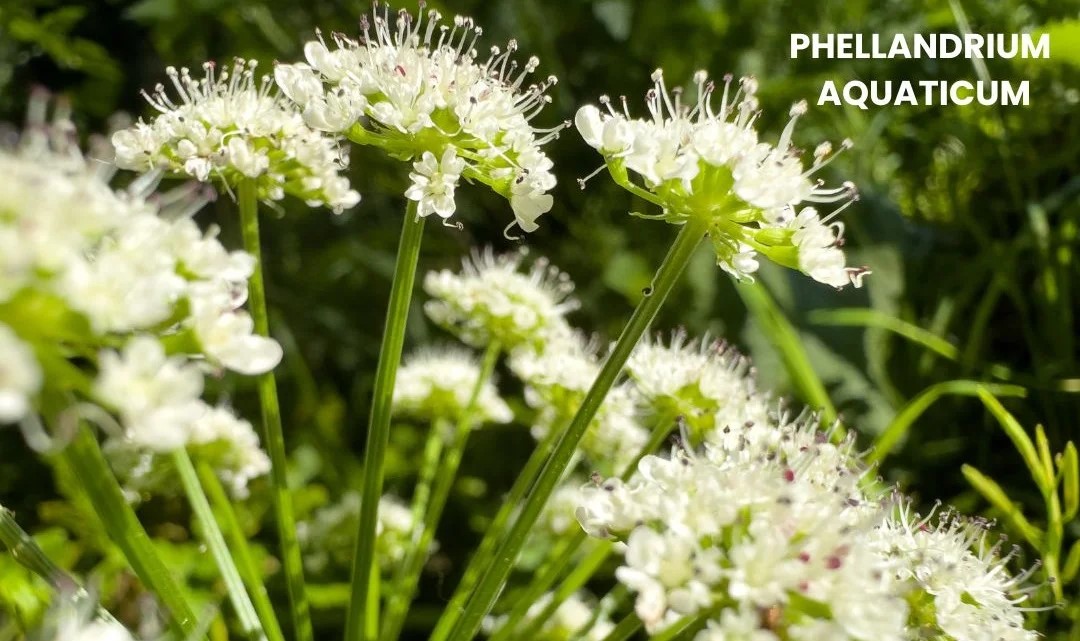Synonyms: Water Fennel, Horsebane
Botanical Name: Phellandrium aquaticum (Linn.)
Family: Apiaceae (Umbelliferae)
Parts Used:
-
Fruit
Description:
Phellandrium aquaticum, commonly known as Water Fennel, is a herbaceous plant from the Apiaceae family. The plant produces small fruits which are the main medicinal part, yielding an essential oil known as Water Fennel Oil. This oil is a yellow liquid with a strong, distinctive aroma and a burning taste. It contains approximately 80% of the terpene compound Phellandrene, responsible for most of its medicinal properties.
Constituents:
-
Essential Oil (1–2.5%)
-
Rich in Phellandrene (80%)
-
Medicinal Uses:
Water Fennel has been traditionally valued for its potent action on the respiratory system, digestive organs, and skin.
-
Respiratory Support:
-
Beneficial in chronic respiratory conditions like bronchitis, pulmonary tuberculosis (consumption), asthma, and emphysema.
-
Notably effective for cases with offensive expectoration and persistent cough.
-
The alcoholic extract and essence have been recommended as active remedies in the relief of bronchitis and consumption.
-
-
Digestive & Fever Management:
-
Used in cases of dyspepsia (indigestion) and intermittent fevers.
-
-
External Application:
-
The root has occasionally been applied locally for the treatment of piles (hemorrhoids).
-
-
Nervous System Action:
-
The Umbelliferae family, to which this plant belongs, has a marked influence on the nervous system, capable of producing either cerebral stimulation or depression in large doses.
-
Excessive consumption of the fruits may lead to symptoms like vertigo, intoxication, convulsions, and coma.
-
-
Toxicity:
-
Fresh leaves are toxic to livestock, potentially causing paralysis. Interestingly, once dried, they lose these harmful effects.
-
-
Other Traditional Indications:
-
Hemoptysis (coughing up blood)
-
Hectic fever
-
Colliquative diarrhea associated with wasting diseases
-
Catarrhal conditions of the mucous membranes
-
Certain pustular skin eruptions
-
Cautions:
When consumed mistakenly in large quantities (similar to Oenanthe crocata), it may lead to severe gastrointestinal irritation, circulatory failure, and central nervous system disturbances.
Summary:
Phellandrium aquaticum stands out as a potent herbal remedy in traditional medicine for its strong expectorant, nervine, and antispasmodic actions. While highly valued in controlled doses, it should be handled with care due to its potential toxicity when overdosed.
Speech Disorder
A speech disorder, also known as a speech impairment...
ADHD
Attention-deficit / hyperactivity disorder (ADHD) is a...
Cerebral Palsy(CP)
Cerebral palsy (CP) is a group of neurological disorders...
Cancer
Cancer is a broad term for diseases where cells...




